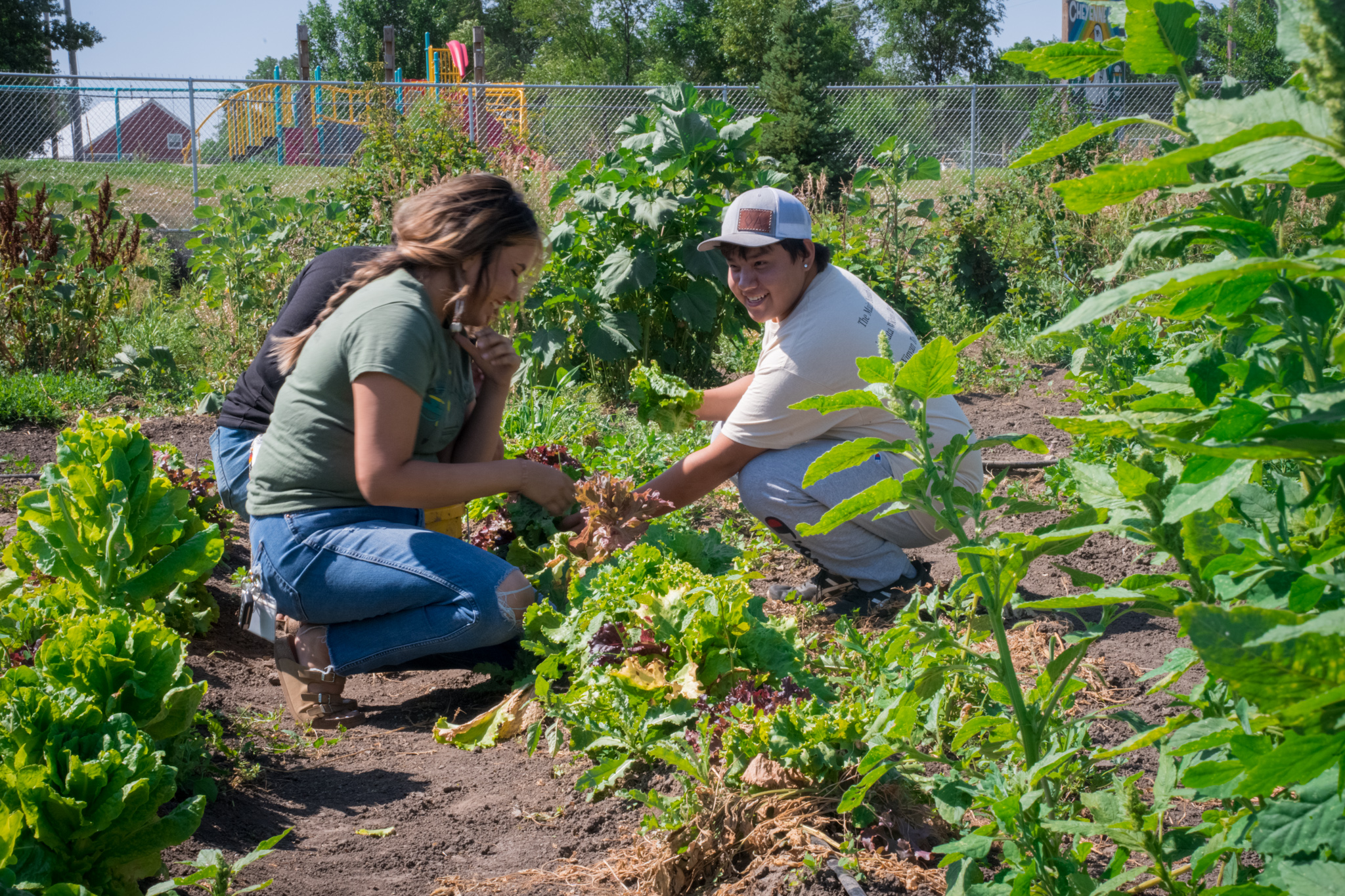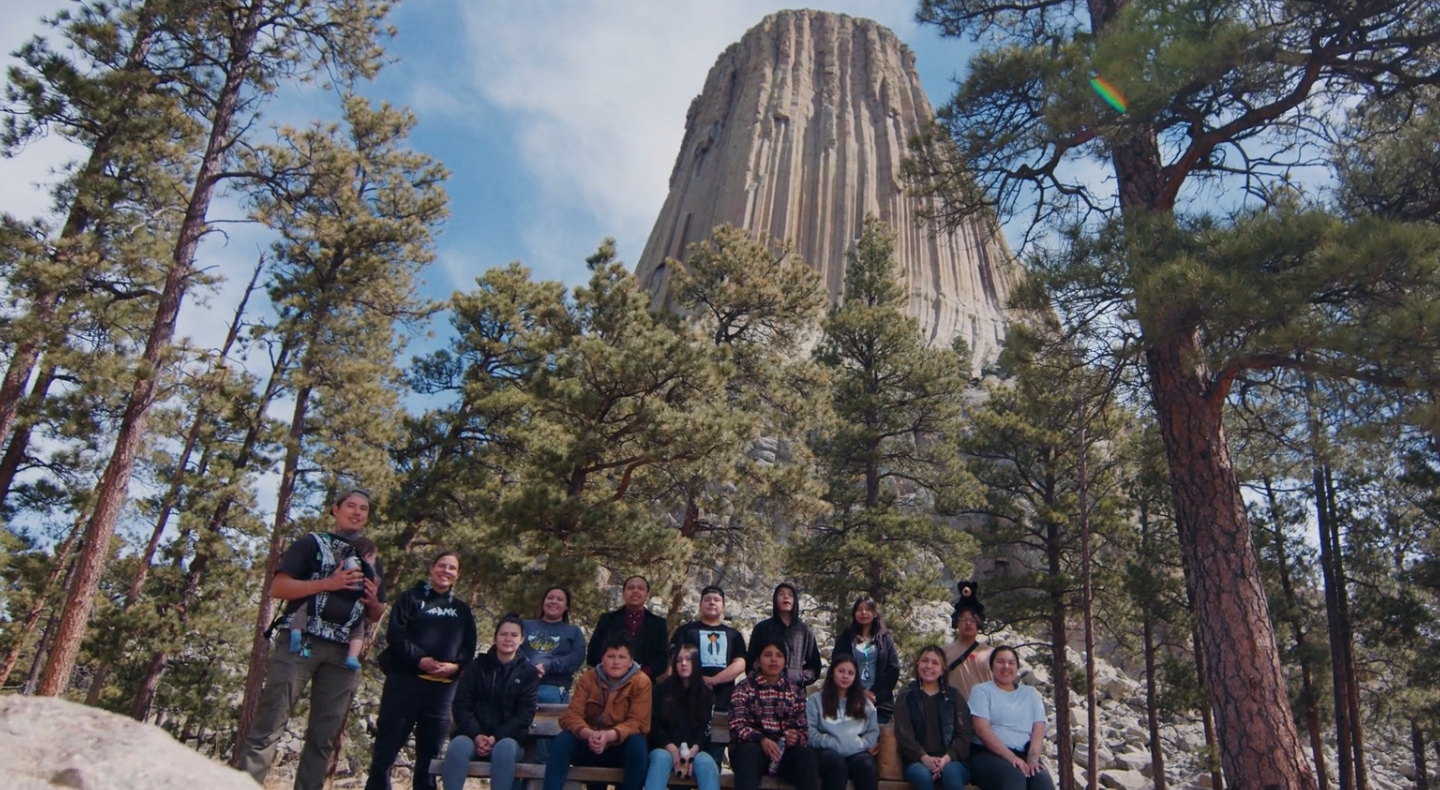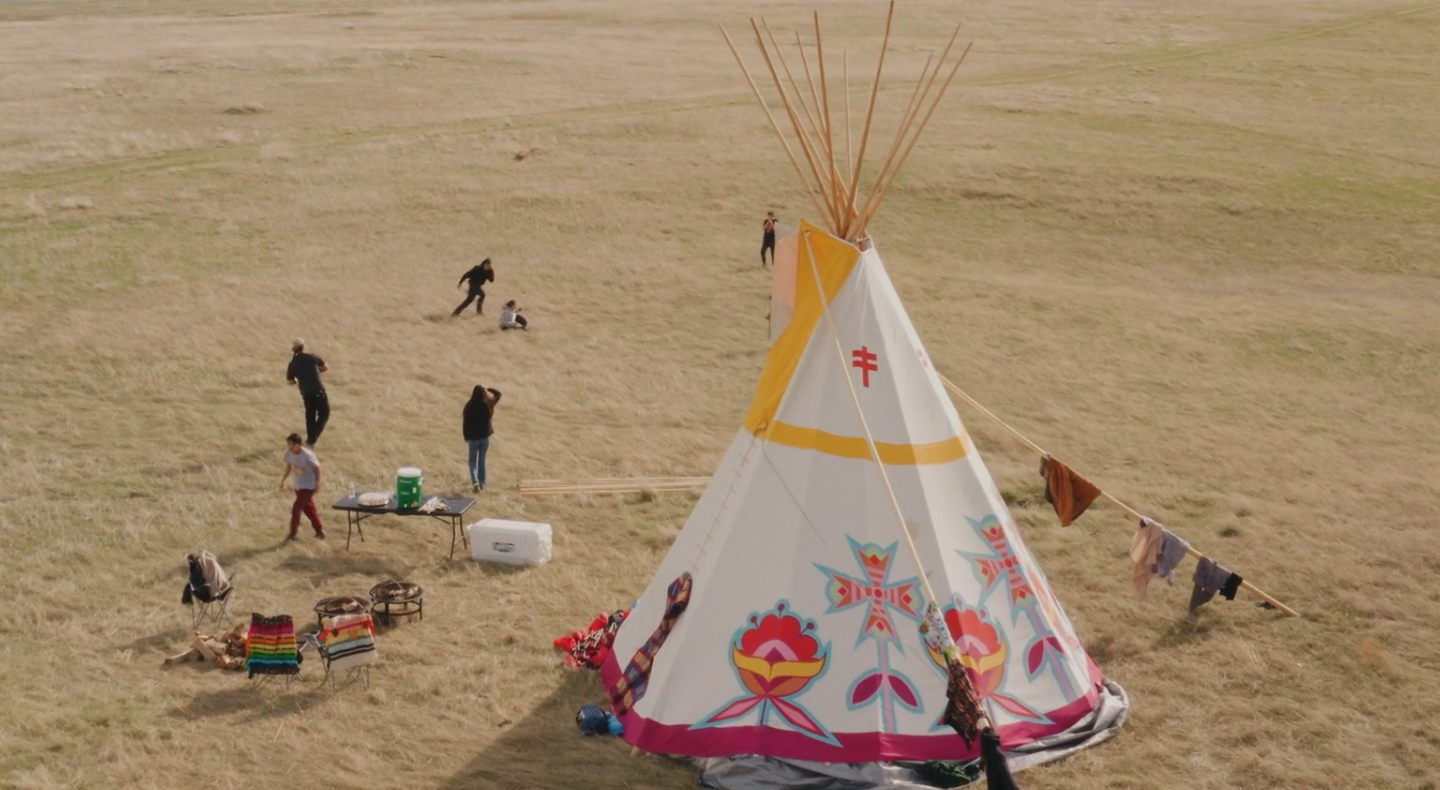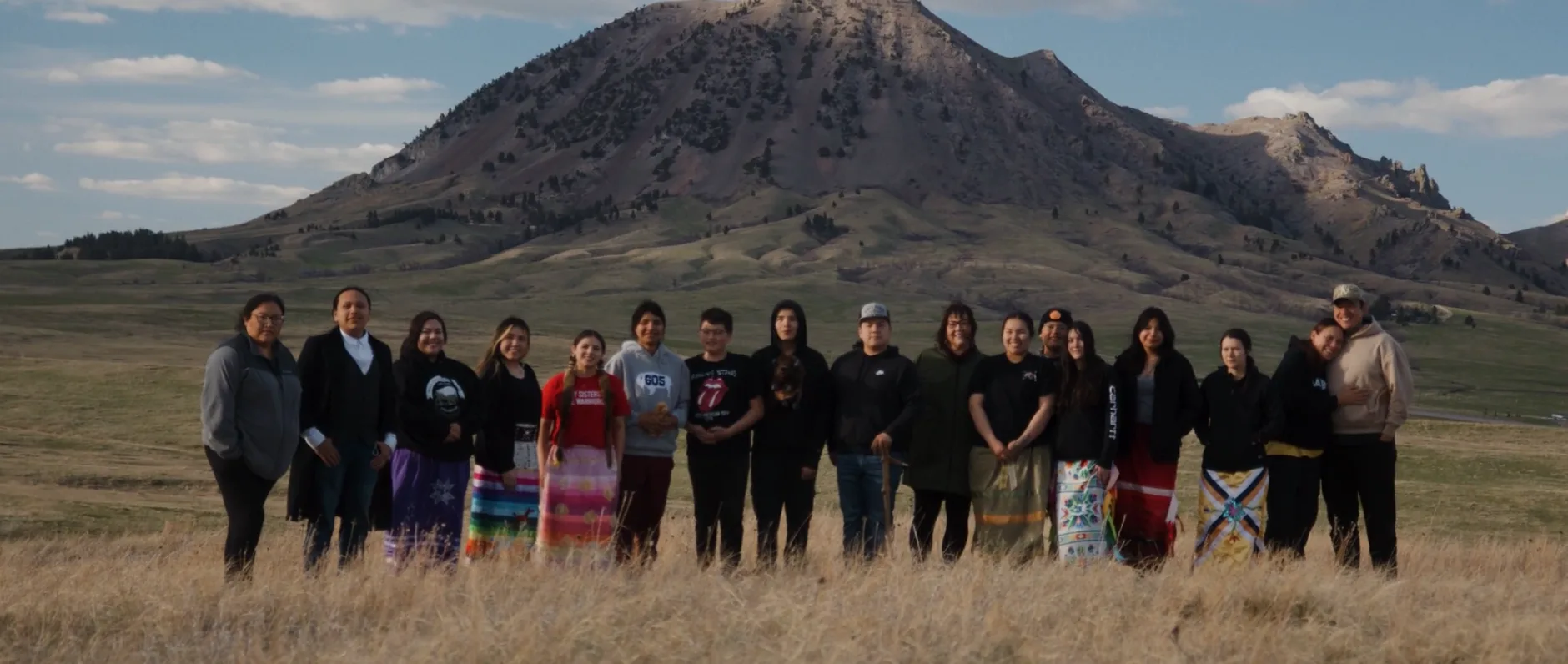“Food sovereignty initiatives might not always be visible, but they are vital — through them, we are revitalizing our community by reclaiming our food systems.”
—Julie Garreau, Founder & CEO, Cheyenne River Youth Project
A Newman’s Own Foundation grantee partner since 2021, the Cheyenne River Youth Project is dedicated to providing the young people on the Cheyenne River Sioux Reservation with the resources and opportunities they need to build a future in which they will do more than survive—they will thrive.
Colonization severed the Lakota Nation’s connection to its own culture—most notably by severing access to the land. Loss of access meant loss of traditional food systems, medicines, ceremonies, and life ways. And that meant cultural devastation.
That’s why a critical part of the nonprofit’s programming is Native Food Sovereignty, which includes the 2.5-acre Winyan Toka Win (Leading Lady) Garden. The garden was started 50 years ago by Chief Executive Officer Julie Garreau’s mother, Iyonne, and a group of Cheyenne River elders. Now, the garden is a living classroom for CRYP’s Native Food Sovereignty teen interns and Garden Club for 4- to 12-year-olds.

During Garden Club in April, kids chose a mix of lettuces, kale, and rainbow chard seeds to start for the 2025 growing season. Dalton Fischer, the Cheyenne River Youth Project Facilities and Garden Manager, shared, “We told them to give good energy to the plants so they will grow healthy and strong, and the kids have enthusiastically responded. Garden Club has been uplifting for all of us so far this season.”
The Winyan Toka Win garden produces approximately 10,000 pounds of food each year, which staff and volunteers incorporate into meals and snacks for programming, as well as gift shop items like pickles, jams, and salsas.

Still from the 2025 documentary short “Wakanyeja Kin Wana Ku Pi: The Children Are Coming Home,” courtesy of Floodgate Media and Steinberger Photography.
Julie emphasizes that food sovereignty, land stewardship, and cultural reclamation are all essential to cultural health for the Lakota people. She shares, “We cannot have true cultural health without control of our food systems, access to healthy lands, and strong cultural connection. To heal, and to restore that cultural health, I believe we must start with increasing access to our ancestral homelands.”

Still from the 2025 documentary short “Wakanyeja Kin Wana Ku Pi: The Children Are Coming Home,” courtesy of Floodgate Media and Steinberger Photography.
And in 2024, a new chapter began with the purchase of Wakanyeja Kin Wana Ku Pi (The Children Are Coming Home), a nearly 40-acre parcel of land adjacent to sacred Mato Paha (Bear Mountain/Bear Butte State Park). “At its heart, this land purchase is all about the cultural health and long-term well-being of our Lakota young people,” Julie said.
Cheyenne River Youth Project plans to bring youth to the land for seasonal culture camps, healing camps, internship activities and workshops, and it will serve as a home base for trips to other important sacred places like Wind Cave, Black Elk Peak and Mato Tipila (Bear Lodge/Devils Tower National Monument).
This year promises to be just as dynamic, with the nonprofit breaking ground on a new arts and culture center this spring. “I’m always excited about new ways to engage kids,” Garreau said. “That’s the beauty of being an organization like Cheyenne River Youth Project – we can design and amend programs to keep kids involved. How can we do it better, how can we do more?”
Get Involved
- Watch Cheyenne River Youth Project’s 2025 documentary short, Wakanyeja Kin Wana Ku Pi: “The Children Are Coming Home”
- Donate to Cheyenne River Youth Project


